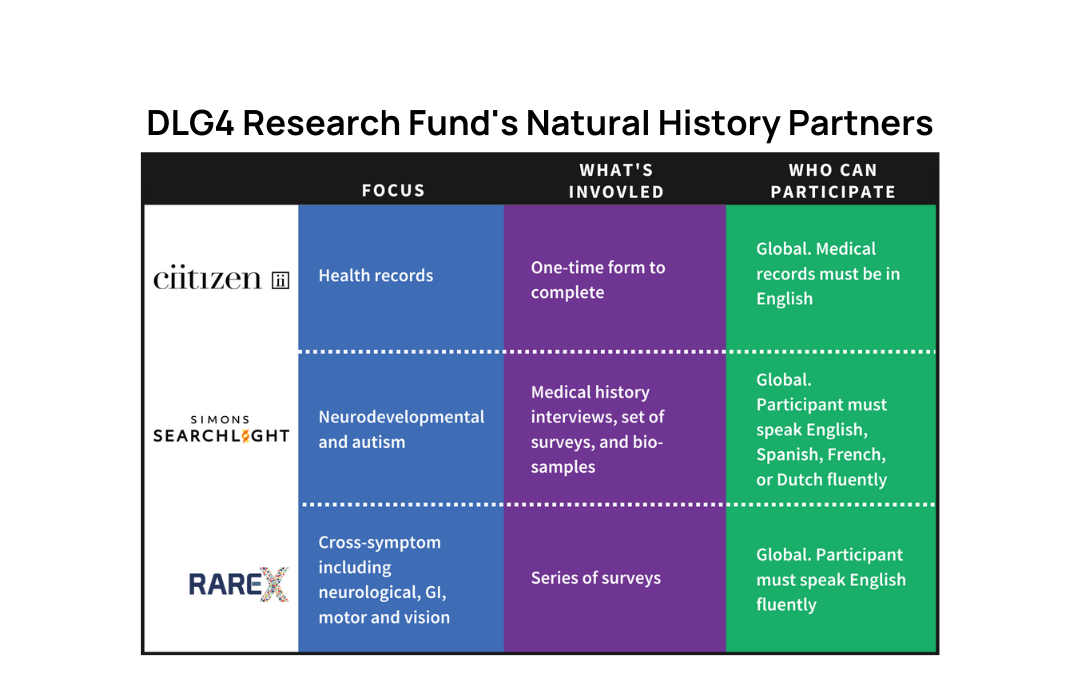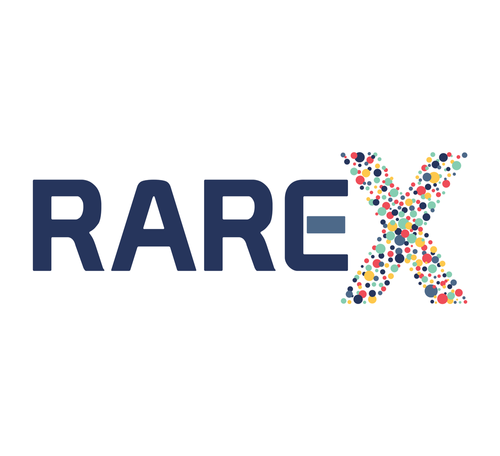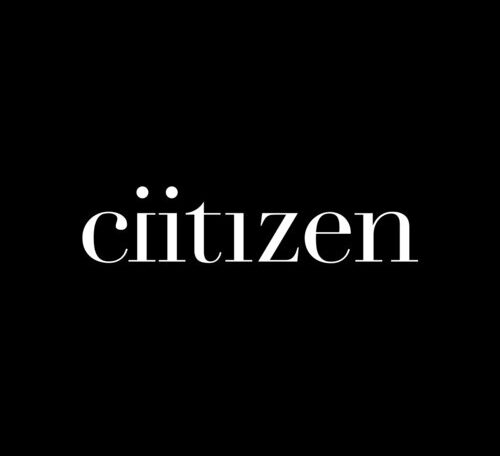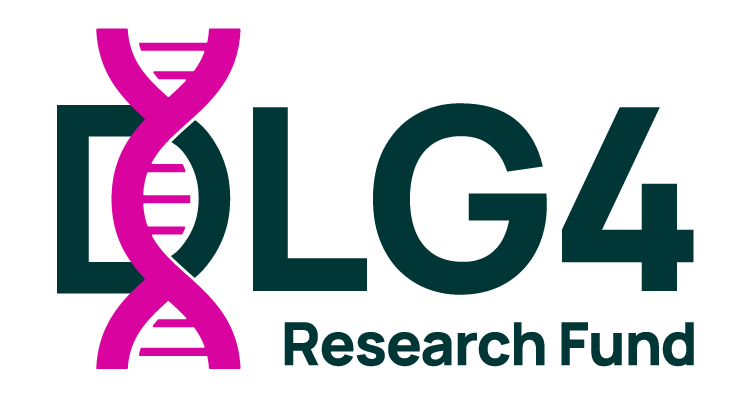What is a Natural History Study?
In order to improve care and develop treatments specific for DLG4 Synaptopathy, a better understanding of the disorder is needed. One way is through collecting information in natural history studies. A natural history study is a type of research study that examines how a disease naturally progresses over time. This can be accomplished in many different ways including (but aren’t limited to) questionnaires and surveys collected over time or reviewing past medical records for trends seen among many patients with the same disorder. It focuses on describing the features and evolution of a disease, and is both retrospective and prospective, collecting data from patients throughout their lifetimes.
Why are natural history studies important?
The data is used to:
- Identify Research Needs
- Connect with Patients
- Inform Drug Development
- Develop Standards of Care
- Potentially Replace Placebo Arms in Clinical Trials.
Hear from Gayatri Rao, MD, JD, Director of Orphan Products Development
How can I participate?
DLG4 Research Fund has partnered with several organizations with the goal to collect natural history information and bio-specimen samples for individuals identified with DLG4 Variants. Participating in research studies is an important method for increasing what we know about DLG4 Synaptopathy, and accelerating development of future treatments and therapies.
Below is information on all the natural history studies, as well as how they complement each other, and work together. And, you can help us speed research efforts right away by building a readily-available pool of data on DLG4.


RARE-X
RARE-X is a non-profit organization that offers a collaborative platform for global data sharing and analysis for rare disorders. Their goal is to help rare disease communities accelerate research and knowledge of a disorder while working to eliminate barriers to participation such as location, language, or time.
The data collection program involves general medical survey that asks questions on ALL systems of the body, whether they are associated with the patient’s primary diagnosis or not. This allows for patients with multiple diseases to enter all their symptoms in one data collection platform, starting with “head to toe” surveys which open up detailed surveys to capture more specific symptoms e.g. seizures, muscles, vision, and GI.

Simons Searchlight
Simons Searchlight is a study, funded by the Simons Foundation, that collects natural history information for families with specific genetic changes that have a known association to neurodevelopmental disorders, like seizures, developmental delay, and/or features of autism including DLG4.
Simons hosts a secure place to share your genetic, developmental, and medical information. Simons also collects interview and survey data from families, called “patient-reported outcomes” which provide important information that complements medical history. De-identified data is made available to interested researchers, for IRB-approved projects.

Ciitizen
Ciitizen is a DLG4 natural history study that uses medical records to collect meaningful information on how a mutation in the DLG4 gene has affected a person’s life, and it includes medical record information across multiple hospitals and providers where a participant has been seen.
Important information that can accelerate research is often trapped in medical records. As a result, drug researchers can’t access the information they need to advance treatments. But as a patient, you can unlock your records and contribute them to research, in a private and secure way.
This will be a global study; however a current limitation is medical records need to be in English as medical record review services in other languages are not yet offered. International families with English medical records can be enrolled, with additional languages supported in the future.
In addition to giving researchers access to cumulative data on medications, tests, labs, and medical notations, all participants will have access to their own information and can even download it to keep for their own records or share with any new providers they may see in the future.
The information gathered from health records can be used to further research and find better treatments for the DLG4 community by sharing anonymized data with researchers, clinicians, and pharmaceutical companies. Academic researchers will have free access (with IRB approval) while industry and pharmaceutical partners will pay a fee.
